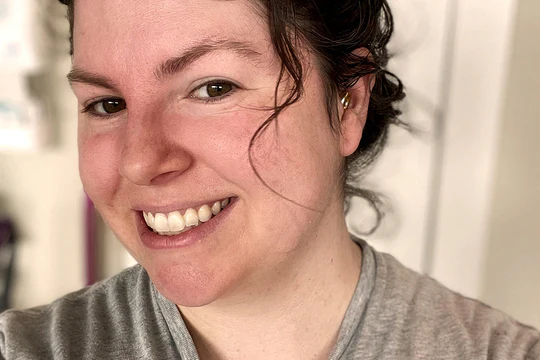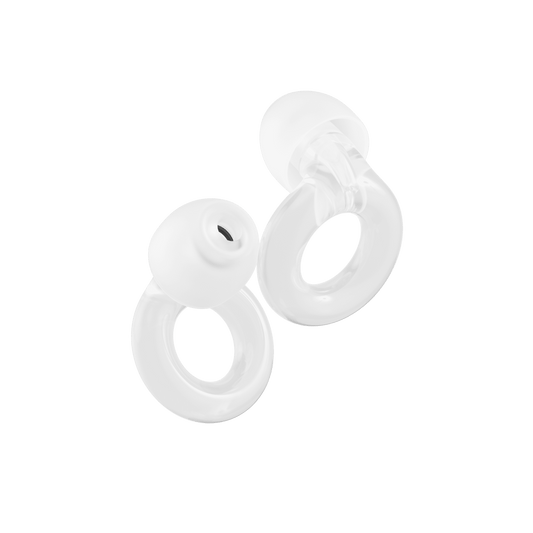Die wichtigsten Erkenntnisse
- Jeder von uns ist unterschiedlich mit einer spezifischen sensorischen Ausstattung und neurologischen Schwelle für verschiedene sensorische Erfahrungen. Mentale Überlastung, Schlafmangel und Stress können unsere Empfindlichkeit gegenüber sensorischen Auslösern erhöhen.
- Wenn unsere sensorischen Systeme ständig in Betrieb sind, kommt es häufig zu einer Sinnesüberlastung. Zu diesen Symptomen gehören unter anderem ein allgemeines Unwohlsein, Gefühle der Überforderung, Aufregung und Frustration sowie die Unfähigkeit, sich zu konzentrieren.
- Ursachen für Reizüberflutung können Faktoren wie Überforderung, starke Gerüche, mangelnde Selbstfürsorge, ein ständig unordentliches Haus, das sich vor deinen Augen entfaltet, ständige Bewegung usw. sein.
- Es gibt Tipps für überreizte Mütter und Väter und sogar Ratschläge, wie man die Reizüberflutung schon im Keim ersticken kann, bevor sie überhaupt entsteht. Zum Beispiel, indem du dir Zeit für dich selbst nimmst, dein Handy öfter weglegst und Geräusch reduzierende Ohrstöpsel verwendest.
Es führt kein Weg daran vorbei - das Leben als Elternteil ist hektisch.
Inmitten der lustigen Momente, der zärtlichen Zeiten und der schlaftrunkenen Kuscheleinheiten gibt es eine verrückte Art von Chaos, die mit der Umgebung einhergeht.
Geschwisterstreit. Dröhnendes Fernsehen. Klingeln an der Tür. Piepsende Telefone. Und dann gibt es noch den einen oder anderen Wutanfall (mit dem wirklich vernünftigen Grund, dass sie keinen Löwen als Haustier haben können oder dass sie nicht wollen, dass ihre Milch weiß ist). Und dabei ist es noch nicht einmal 11 Uhr.
Oh, das wunderbare Leben der Elternschaft. Zweifellos ist es wunderschön und lohnend - es gibt nichts Schöneres, als deinen kleinen Menschen aufwachsen zu sehen. Das heißt aber nicht, dass die Reise nicht auch von Wutanfällen, Auszeiten und Tränen (und zwar nur von deinen eigenen) unterbrochen wird. Die Sache ist die, dass du als Eltern vom ersten Tag an multitaskingfähig bist, sobald dein Kleines auf der Welt ist. Es ist, als hättest du 50 Tabs gleichzeitig geöffnet, zwischen denen du verzweifelt versuchst, hin und her zu springen, ohne etwas zu vergessen.
Und wenn es um deine Sinne geht, kann es sich um 17 Uhr wie ein regelrechter Angriff anfühlen. Es kann sein, dass du dich dabei ertappst, wie du deine Kinder oder deinen Partner anschnauzt. Und wahrscheinlich bist du nicht einmal wütend, sondern einfach nur überreizt.
Die Wahrheit ist, dass Eltern auf der ganzen Welt mit Sinnesreizen überhäuft werden und ihre Fähigkeit, diese zu verarbeiten und damit umzugehen, nur schwer mithalten kann.
In diesem Blogbeitrag gehen wir der Frage nach, was es bedeutet, ein überreiztes Elternteil zu sein, was die Ursachen dafür sind und welche
Möglichkeiten wir haben, um besser damit umzugehen und unsere Auslöser zu verstehen. Zunächst einmal: Reizüberflutung.
Was ist Reizüberflutung?
Deine Sinne arbeiten die ganze Zeit hinter den Kulissen. Eine Überreizung entsteht, wenn einer oder mehrere von ihnen zu viele Informationen aufnehmen, die unser Gehirn nicht verarbeiten kann. In diesem Fall besteht die Gefahr einer Reizüberflutung.
Wenn du unter Reizüberflutung leidest, nutzt dein Gehirn nicht seine höheren Zentren für das Denken und die emotionale Regulierung. Es ist ganz darauf konzentriert, dich zu schützen. Dann schüttet dein Körper Stresshormone aus und der
Blutfluss in deinem Gehirn verlagert sich in die primitiven oder unteren Zentren. Reizüberflutung ist nicht unbedingt etwas Neues für Eltern. Sie kann zu jedem Zeitpunkt in unserem Leben auftreten.
Aber vielleicht war die Reizüberflutung vor der Elternschaft einfacher zu bewältigen. Du hattest mehr Zeit für dich, mehr Schlaf und insgesamt mehr Ruhe - all die Dinge, die im Leben Wunder wirken, um die Spannungen abzubauen.
Es ist sicher, dass die Elternschaft nicht immer das gleiche Gefühl von Ruhe mit sich bringt. Als Elternteil, dessen Nervensystem durch die ständige Reizüberflutung überlastet ist, gerät man oft in einen ständigen
Kampf-oder-Flucht-Modus. Und wenn man dem den ganzen Tag über ausgesetzt ist, kann man sich desolat und wütend fühlen und schließlich Depressionen und Angstzustände bekommen.
Symptome der Reizüberflutung
Die Art und Weise, wie sich Reizüberflutung äußern kann, ist von Elternteil zu Elternteil verschieden.Eine Person kann zum Beispiel empfindlicher auf Geräusche reagieren, während andere bestimmte Texturen unerträglich finden.
Häufige Symptome sind:
- Ein allgemeines Gefühl des Unbehagens
- Gefühle der Überforderung, Unruhe und FrustrationUnfähigkeit, sich zu konzentrieren
- Unfähigkeit, Geräusche, Gerüche oder andere Sinneseindrücke zu ignorieren
- Beunruhigung oder sogar Angst
- Unruhe
- Extreme Empfindlichkeit gegenüber bestimmten Texturen
- Stress
- Schlaflosigkeit
Was verursacht Überstimulation bei Eltern?
Wenn es um unseren Körper geht, ist jeder unterschiedlich gut in der Lage, Dinge bis zu einem bestimmten Grad zu ertragen, bevor er genug hat. Denk an die unterschiedlichen Reaktionen auf Sonneneinstrahlung oder die Menge, die Menschen essen, bevor sie sich satt fühlen.
Das Gleiche gilt für die sensorische Verarbeitung - jeder von uns hat seine eigene Art, sensorische Informationen aufzunehmen.
Es gibt Dinge, die die sensorische Verarbeitung erschweren, und das sind Dinge, die Hand in Hand mit der Erziehung gehen. Zum Beispiel: Schlafmangel, Alterung und eine stressige psychische Belastung. Kommt dir das bekannt vor?
Hier sind einige der häufigsten Ursachen für Reizüberflutung:


Du bist zu sehr berührt
Hast du schon einmal den Begriff "ausgezupft" gehört? Alle Eltern von kleinen Kindern kennen das: Es vergeht keine einzige Stunde, in der du nicht irgendetwas in die Hand nimmst... geknuddelt wirst... jemanden in den Schlaf wiegst... auf deine Füße trittst... dir den Ellbogen in die Rippen stößt. Die Liste ist endlos.
Manchmal wünschst du dir einfach eine Zeit, in der dich niemand berührt. Nicht dein Kind, dein Partner, die Katzen.
In solchen Momenten kann es sich so anfühlen, als wärst du von körperlichen Berührungen völlig übersättigt und der Gedanke, dass dich ein anderes Wesen braucht, ist zu viel, um es zu ertragen. Im schlimmsten Fall kann das zu Gefühlen der Überforderung, Panik und sogar Wut führen.
Du bist 24/7 auf Abruf
Der Begriff "mit einem Auge schlafen" war noch nie so treffend wie in der Elternschaft.
Von dem Moment an, in dem dein Kind geboren wird, bist du seine Person. Und besonders als Baby bist du rund um die Uhr auf Abruf. Du kannst dich nicht krank melden oder stundenlange Mittagspausen einlegen. Du bist mittendrin und voll dabei.


Auditive Überstimulation
Da ist auch die Waschmaschine, die an diesem Tag ihren zehnten Waschgang macht. Singendes Spielzeug. Die piepende Mikrowelle. Ganz zu schweigen vom laufenden iPad, das dir fünf Minuten "Ruhe" verschafft.
Auch das Schreien von Babys ist eine der Hauptursachen für Stress, Überforderung und Reizüberflutung. Schau dir unseren Beitrag über Wie man mit einem weinenden Baby umgeht.
Geräusche sind eine Konstante in der Erziehung, kein Wunder also, dass sie einer der Hauptverursacher von Reizüberflutung sind, über die Eltern berichten.
Körperliche Anforderungen
Bei kleinen Kindern muss man sich viel bücken und aufheben. Ganz zu schweigen vom Schaukeln und Wiegen kleiner Babys. Und das alles, während du versuchst, nach einer Reihe schlafloser Nächte zu funktionieren.
Das ganze Bücken aktiviert dein Vestibularsystem rund um die Uhr.
Das kann sich völlig überwältigend anfühlen, vor allem, wenn du es mit allem anderen verbindest, was deine Sinne durchmachen.
Kinder und ihre Aktivitäten... nun... sie riechen nicht immer gut
Tatsache: Kinder bringen eine große Vielfalt an Gerüchen mit. Und das kann sich oft wie ein Sperrfeuer auf unsere Sinne anfühlen, vor allem, wenn du selbst empfindlich auf Gerüche reagierst. Da ist ihr Essen und die ständigen Zwischenmahlzeiten. Es gibt unzählige Windelwechsel. Ganz zu schweigen von der Babylotion, dem Puder und den Medikamenten.
10M+ happy customers
Unsere Ohrstöpsel
Das Chaos beobachten
Endlose Unordnung ist für alle Eltern stressig, aber wenn sich die Wäsche stapelt, das Spielzeug auf dem Boden liegt und der Kreislauf des schmutzigen Geschirrs nicht endet, kann das sehr überwältigend sein.
Deine körperlichen Bedürfnisse werden nicht befriedigt
Die Art und Weise, wie du dich körperlich fühlst, kann zur Überreizung als Elternteil beitragen. Vielleicht bist du müde oder du ernährst dich nicht optimal. Häufig leiden frischgebackene Eltern auch an Anämie, einer Grunderkrankung, bei der du nicht genug Eisen im Blut hast.
Wenn du mit all diesen Gefühlen körperlich zu kämpfen hast, werden deine Sinne eher von anderen Reizen angestrengt, was dich anfälliger für Überlastung macht.
Dein "innerer Kritiker" könnte sein hässliches Haupt erheben
"Ich bin keine gute Mutter" "Ich schnauze meine Kinder zu oft an" "Andere Eltern sind nicht so."
Es ist Zeit, damit aufzuhören. Es ist nichts, was du falsch machst, es ist ein ganz normaler Teil der Reise. Mach einen Schritt zurück, um eine Perspektive zu gewinnen. Wenn du dich bereits ängstlich und von Selbstzweifeln geplagt fühlst, ist es wahrscheinlicher, dass dein Gehirn auf Überstunden schaltet und noch mehr Gefühle der Überreizung hervorruft.
Keine Zeit für Selbstfürsorge
Erinnere dich: Wenn du Gefühle von Traurigkeit, Depression oder Einsamkeit verspürst, solltest du unbedingt mit jemandem darüber sprechen. Es ist leicht, dass Eltern überreizt werden. Du bist nicht allein. Neue Eltern brauchen und verdienen Unterstützung.
Ständige Bewegung
Wenn Kinder um dich herumschwirren, gibt es eine Menge Bewegung. Sie spielen, rennen, springen, hüpfen, fallen um usw. Da liegen die Nerven blank, wenn man sich eigentlich nur nach Ruhe sehnt.
Bei all diesen Dingen ist es wichtig, sich daran zu erinnern, dass Kinder genau so laut und ungestüm sind, wie sie sein sollen. Sie sind bedürftig und laut und wollen immer spielen oder kuscheln. Das heißt aber nicht, dass das nicht auch seinen Tribut fordert. Es geht darum, unsere sensorischen Auslöser zu erkennen, damit wir in der Lage sind, die Erfahrung zu genießen, dass unsere Kinder zu den großartigen Menschen heranwachsen, die sie sind.


Wege zur Bewältigung von Überstimulation
Ja, das gehört alles zur Elternschaft, aber es ist auch wichtig, dass du dein Gehirn schützt und deine Kinder so gut wie möglich genießen kannst.
Hier erfährst du, wie du als Elternteil mit Reizüberflutung umgehen kannst:
- Halte dich mit der Terminplanung zurück Das Leben ist voll, vor allem, wenn Kinder dazukommen. Aber wenn du anfängst, deinen Terminkalender zu voll zu packen, kann das zu Stress führen. Um die Reizüberflutung zu minimieren, solltest du versuchen, die Aktivitäten so gut wie möglich zu verteilen oder wenn möglich ganz zu streichen. So kannst du dich erholen, deine Gefühle regulieren und deinem sensorischen System eine Pause gönnen. Du kannst nur so viel tun.
- Akzeptiere, dass Multitasking nicht immer machbar ist Du bist vielleicht stolz auf deine erstaunlichen Multitasking-Fähigkeiten. Und warum solltest du das auch nicht? Das Problem ist jedoch, dass wir beim Multitasking unsere Aufmerksamkeit aufteilen, was wiederum bedeutet, dass auch unsere Sinneswahrnehmungen aufgeteilt werden. Das lässt ein fast unmöglich kleines Zeitfenster für alles andere übrig (nämlich für deine Kinder). Wenn du also das Abendessen kochst, eine E-Mail beantwortest und dich mit deinem Partner unterhältst, solltest du versuchen, ein wenig Raum für sensorische Unterbrechungen oder unerwartete Hilfeanfragen zu lassen. Das hilft dir, dich nicht von der Reizüberflutung überwältigt zu fühlen.
- Plane eine ruhige Zeit ein Lass alle wissen, dass du dir Zeit für dich nimmst. Und dann tu es auch. Selbst wenn es nur eine Auszeit in deinem Schlafzimmer oben ist (mit "Bitte nicht stören"-Schild und allem, was dazugehört!). Vielleicht kannst du auch eine Ruhezeit einführen, wenn du von einer Aktivität im Freien nach Hause kommst. Auf diese Weise wird jeder in die Routine kommen und wissen, woran er ist. Du weißt, dass du die wichtige Zeit bekommst, um dich zu erholen, und nicht an den Punkt kommst, an dem du überfordert bist und ein schlechtes Gewissen bekommst.
- Lass die Technik ihre Arbeit machen Die meisten Eltern werden dir zustimmen: Das iPadhat ihnen den Umgang mit vielen Nervenzusammenbrüchen erspart. Es kann ein sehr effektives Werkzeug sein, um deine Kinder abzulenken und dir die nötige Atempause zu verschaffen. Das heißt nicht, dass du deine Kinder stundenlang vor den Bildschirm setzen sollst, aber wenn du ihnen iPad-Zeit gönnst, bekommst du die dringend benötigte Zeit, um dich zu erholen. Dann kannst du erfrischt zurückkommen und bist bereit, die Reizüberflutung und Überforderung zu überwinden, ohne Gefahr zu laufen, auszuflippen. Das Wichtigste ist, ein Gleichgewicht zu finden und Wege zu entdecken, wie du dir selbst eine Pause gönnen kannst und auch dein eigenes Wohlbefinden als Priorität anerkennst.
- Verwende geräuschunterdrückende Ohrstöpsel für die Elternschaft Wenn du bedenkst, dass das Weinen eines Babys bis zu 120 dB laut sein kann (das entspricht in etwa der Lautstärke eines startenden Flugzeugs), ist es keine Überraschung, dass die Sinne ständig überfordert sind. Lärmreduzierende Ohrstöpsel können dir als Eltern helfen, mit der Reizüberflutung umzugehen. Ohrstöpsel wie Loop Engage und Loop Engage Plus. Diese modernen Ohrstöpsel wurden speziell entwickelt, um die Lautstärke der Elternschaft zu begrenzen und gleichzeitig dafür zu sorgen, dass du nichts verpasst. Loop Engage sind Ohrstöpsel, die den Lärmpegel in der Elternschaft um bis zu 16 Dezibel reduzieren. Dank eines patentierten akustischen Kanals und eines neu entwickelten Filters sind sie zu 100 % sicher zu tragen, während du
auf deine Kinder aufpasst. Du kannst immer noch alles hören, nur eben mit etwas mehr Ruhe. Außerdem sind sie ultrabequem und flexibel und passen in alle Arten von Ohren. Wenn du einen höheren Grad an Lärmreduzierung suchst, sind die Loop Engage Plus die richtigen Ohrstöpsel für dich. Sie sind perfekt, um den Lärm zu reduzieren und trotzdem alles kristallklar zu hören, damit du dich darauf konzentrieren kannst, präsent und ruhig zu bleiben. - Praktiziere Selbstfürsorge Das ist nicht nur ein Schlagwort. Sie ist enorm wichtig für unser Wohlbefinden. Als Eltern haben wir oft ein schlechtes Gewissen, wenn wir uns die Zeit nehmen. Aber es ist sehr wichtig, dass du dich um dich selbst kümmerst, um Stress, Reizüberflutung und Burnout vorzubeugen - so fühlst du dich erholter und weniger dem Zusammenbruch nahe.
- Leg das Handy weg Technik kann eine große Hilfe sein, wenn du Eltern bist, vor allem, wenn es darum geht, Gefühle der Isolation zu bekämpfen und dich mit der Außenwelt zu verbinden. Das Problem ist, dass sie auch schädlich sein kann und mit Reizüberflutung in Verbindung steht. Wenn wir ständig auf
sind, konzentrieren wir uns stark und jede Ablenkung wird sofort zu einer Unterbrechung. Du bist dir dessen vielleicht nicht bewusst, aber es ist eine der Hauptursachen für Reizüberflutung bei Müttern und Vätern überall. Indem du die Telefonnutzung einschränkst, kannst du auch die Reizüberflutung begrenzen. - Sag, was du brauchst Sprich mit deiner Familie über Reizüberflutung. Wenn deine Kinder im richtigen Alter sind, lehrt sie das nicht nur Einfühlungsvermögen, sondern auch, warum sie ihr eigenes Wohlbefinden schätzen sollten.

Wie man mit einem weinenden Baby umgeht
Entdecke effektive Strategien, um ein weinendes Baby zu beruhigen, damit es sich wohlfühlt und du die Ruhe behältst. ...

Reizüberflutung und Kinder bei COVID - Erfahrungsbericht
COVID-19 hat uns alle eingesperrt und vereint Elternschaft, Beziehung und Arbeit mit wenig Ablenkung. Reizüberflutung...

Die Auswirkung der Lärmsensibilität auf das tägliche Leben: Die Statistik ent...
Es gibt bis zu 6 Millionen lärmempfindliche Menschen in Großbritannien Wir haben eine Umfrage durchgeführt, um zu ...

















